Menu
A decade of bridging science and patient care: Celebrating the Grifols Chair’s transformative impact on translational research and innovation in chronic inflammatory disorders
“Translating Science into the Clinic” celebrates the achievements and ongoing public-private collaboration fostered through the Grifols Chair. The event will bring together leading experts in translational research to explore how the integration of omics with clinical research has advanced our understanding of chronic liver disease and other inflammatory conditions.
The first Symposium of the Grifols Chair showcases innovative approaches to explore immune cell function, advances and trends in omics technologies, and novel strategies to treat inflammatory disorders. The symposium highlights the success of the Grifols Chair research program in bridging the gap between scientific discovery and patient care. Over the last 10 years, the program has provided unprecedented insights into the complexities of cirrhosis and its complications, laying the groundwork for broader applications across a range of disciplines.
With a strong focus on public-private partnership, this symposium not only marks the renewal of a key research agreement between EF CLIF, Hospital Clínic de Barcelona and Fundació de Recerca Clínic Barcelona-Institut d’Investigacions Biomèdiques August Pi i Sunyer (FRCB-IDIBAPS), but also emphasizes the continued commitment to advancing translational research for improved patient outcomes.
Find out more about FRCB-IDIBAPS
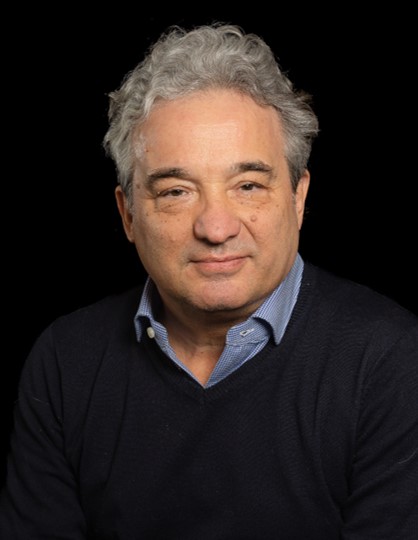
Andrea Cerutti received his MD and board in Hematology at University of Padova (Padova, Italy). Later, he earned a PhD degree in Biomedical Sciences at Universitat Pompeu Fabra (Barcelona, Spain). After completing his postdoctoral studies, in 2001 and 2006 he was appointed tenure track Assistant Professor and then Associate Professor of Pathology at Weill Cornell Medical College (New York, NY, USA), respectively. After earning tenure in 2009, he joined Icahn School of Medicine at Mount Sinai (New York, NY, USA), where he was appointed Professor of Medicine. He held that position until 2022. In 2010, he was appointed ICREA Professor at Hospital del Mar Research Institute (IMIM) within the Parc de Recerca Biomèdica de Barcelona (PRBB). There, he established the B Cell Biology Group. Over the past 15 years, he has studied the regulation of antibody responses by innate and adaptive immune signals. He showed that splenic marginal zone B cells interact with neutrophils, type-3 innate lymphoid cells and marginal reticular cells to mount protective IgM and IgG responses to conserved microbial antigens. He also unraveled the complexity of IgA and IgM production to commensals by gut B cells and of IgD production to environmental antigens by nasopharyngeal B cells. Lastly, he first identified the immunoregulatory properties of gut mucus. Being widely recognized by the international scientific community Prof. Cerutti’s research is relevant to infection, inflammation, autoimmunity, immunodeficiency and vaccine development.
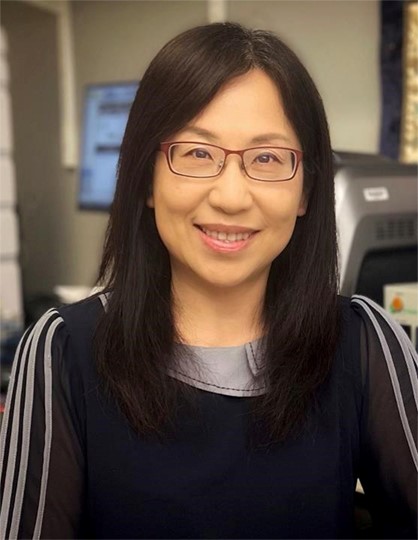
Nan Chiang is a Principal Associate and Assistant Professor in the Center for Experimental Therapeutics and Reperfusion Injury at Brigham and Women’s Hospital and Harvard Medical School. She received her PhD from University of Kentucky in Molecular Biology and Pharmacology focusing on structure–function relationships of lipid mediator receptors. She then continued her postdoctoral training in Prof. Charles Serhan’s laboratory at Brigham and Women’s Hospital and Harvard Medical School. She was a Frederic C. McDuffie Fellow at the Arthritis Foundation, the distinction given yearly to the highest ranked postdoctoral fellowship in basic science. She has extensive experience in the field of resolution of inflammation, infection and tissue injury. Her research interests include elucidation of novel resolution pathways and mechanisms, with a focus on the specialized pro-resolving mediators and their receptors that govern timely resolution of inflammation. These are the fields pioneered by the Serhan Laboratory.
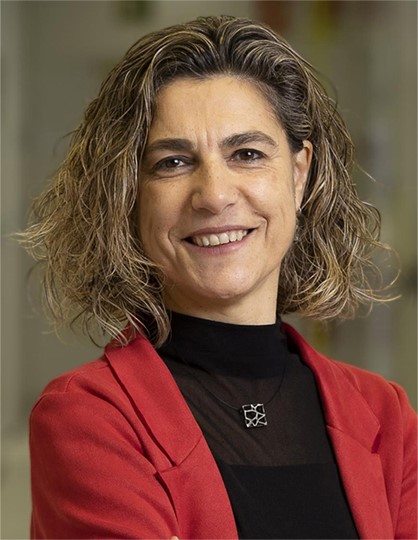
Montserrat Costa completed her Chemistry studies at the University of Barcelona, Spain, in 1993. She then began her career in the Biochemistry field, working on a research project in the Biochemistry and Molecular Biology Department at the University of Barcelona until she earned her degree in 1995. In 2000, she received her PhD in Cellular Biology from the Autonomous University of Barcelona, based on her research on autoimmune hepatitis, which she conducted in the Immunology Unit at Hospital de la Santa Creu i Sant Pau in Barcelona. In 1999, Dr. Costa joined the R&D team at Grifols, where she contributed to research projects focused on plasma proteins such as albumin, immunoglobulins, and alpha-1 antitrypsin. She is currently the Senior Director of Protein Discovery within the Scientific Innovation Office at Grifols.
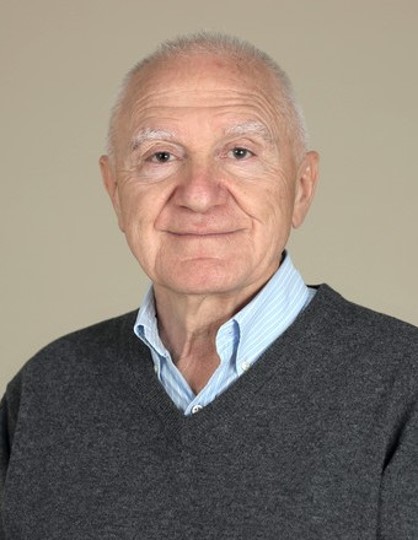
José M. Mato is the founder and General Director of CIC bioGUNE (Bilbao, Spain) and CIC biomaGUNE (San Sebastián, Spain), and Professor at the Spanish National Research Council (CSIC). He holds a degree in Biochemistry from the Complutense University of Madrid (Madrid, Spain) and earned his PhD degree from Leiden University (Leiden, The Netherlands). He completed postdoctoral training at the University of North Carolina at Chapel Hill (Chapel Hill, NC, USA), the Biozentrum of University of Basel (Basel, Switzerland), and the National Institutes of Health (Bethesda, MD, USA) before joining the faculty of the Hospital Universitario Fundación Jiménez (Madrid, Spain). Prof. Mato has also served as a Professor at University of Navarra (Navarra, Spain) and as a Visiting Professor at both the University of Pennsylvania and Thomas Jefferson University (Philadelphia, PA, USA). From 1992 to 1996, he served as President of the CSIC. Throughout his career, Prof. Mato has made fundamental contributions to the field of hepatology. His pioneering work has identified key alterations in S-adenosylmethionine metabolism, essential for understanding the development of metabolic dysfunction–associated steatotic liver disease (MASLD). The integration of these findings with advanced metabolomics techniques has enabled the development of innovative non-invasive diagnostic applications for MASLD and, more recently, has facilitated the stratification of patients into subtypes with different levels of cardiovascular risk. In recognition of his contributions to biomedical research, he was awarded the Lennox K. Black International Prize for Excellence in Biomedical Research in 1994, and the Spanish National Research Prize in Medicine in 2004.

Anna Pascual-Reguant is the Spatial Genomics Team Leader at Centro Nacional de Análisis Genómico (CNAG). After receiving her PhD degree from the Department of Biology, Chemistry and Pharmacy of Freie Universität Berlin (Berlin, Germany), she carried out her postdoctoral research in the Hauser Lab at the Deutsches Rheuma-Forschungszentrum and the Charité-Universitätsmedizin Berlin. Her research focused on the in-depth and spatially resolved analysis of local immune responses using state-of-the-art, multiplexing techniques on clinical samples. Since then, she became very interested in studying tissue niches, both at the protein and transcriptional level, as self-organized functional units that modulate local immunity and dictate tissue homeostasis and disease. Dr. Pascual-Reguant received the Ramon y Cajal 2022 grant (RYC2022-035848-I) to establish herself as a researcher in Spain. Her team uses spatial omics to provide insights into cellular and molecular interactions within tissues, to further the understanding of health and disease at a single-cell level. Her interdisciplinary team merges computational science, genomics, immunology, biotechnology, pathology and machine learning to interpret complex spatial data. The team is equipped with advanced spatial omics platforms, combining sequencing and imaging techniques as tools for next-generation pathology. Their commitment to innovation is geared towards establishing CNAG as a leading center for spatial omics in Spain.
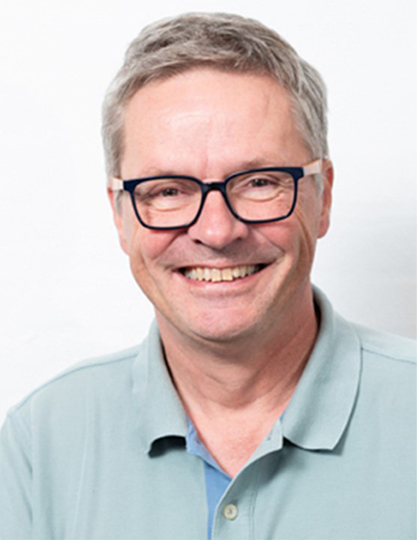
Bart Staels is Director of the Inserm Unit UMR1011 with laboratories at the Lille Pasteur Institute and Medical Faculty campus (Lille, France). After his doctorate at the KU Leuven (Leuven, Belgium), he completed his training at the UC San Francisco (San Francisco, CA, USA) and RPR (Paris, France). He is senior member of the Institut Universitaire de France, co-founder and board member of the European Genomic Institute for Diabetes (Lille, France), member of the French National Academy of Pharmacy and the Belgian Royal Academy of Medicine, and past-President of the French Atherosclerosis Society. Prof. Staels has received the EAS Young Investigator Award, the CNRS Bronze Medal, the Lifetime Achievement Award of the British Atherosclerosis Society, the “Barré” prize from the Faculté de Pharmacie of Montreal (2007), the “JP Binet” prize from the Fondation pour la Recherche Médicale (2011), the Gerald Reavan Distinguished Leader in Insulin Resistance Award (2012), the International Conference on the Bioscience of Lipids (ICBL) Laurens van Deenen award (2017) and the European Atherosclerosis Society “Anitschkow Prize” (2024). Prof. Staels’ research covers the fields of obesity, diabetes, hepatic and cardiovascular diseases focussing on molecular pharmacology of these cardio-metabolic diseases. He particularly studies the role of nuclear receptors in the control of inflammation and lipid and glucose homeostasis as well as the transcriptional mechanisms involved.
|
|
Esteve Auditorium
Center Esther Koplowitz
C/ Rosselló 149–153
08036 Barcelona
Spain


Communications Team
European Foundation for the Study of Chronic Liver Failure
Avinguda Diagonal 477, 11th floor
08036 Barcelona
Spain
+ 34 932 271 400
Contact us by email
European Foundation for the Study of
Chronic Liver Failure
Avinguda Diagonal 477, 11th floor
08036 Barcelona, Spain
Tel: +34 93 227 14 00
Email: Send us an email
© 2025 European Foundation for the Study of Chronic Liver Failure

| Cookie | Duration | Description |
|---|---|---|
| cookielawinfo-checkbox-analytics | 11 months | This cookie is set by GDPR Cookie Consent plugin. The cookie is used to store the user consent for the cookies in the category "Analytics". |
| cookielawinfo-checkbox-functional | 11 months | The cookie is set by GDPR cookie consent to record the user consent for the cookies in the category "Functional". |
| cookielawinfo-checkbox-necessary | 11 months | This cookie is set by GDPR Cookie Consent plugin. The cookies is used to store the user consent for the cookies in the category "Necessary". |
| cookielawinfo-checkbox-others | 11 months | This cookie is set by GDPR Cookie Consent plugin. The cookie is used to store the user consent for the cookies in the category "Other. |
| cookielawinfo-checkbox-performance | 11 months | This cookie is set by GDPR Cookie Consent plugin. The cookie is used to store the user consent for the cookies in the category "Performance". |
| viewed_cookie_policy | 11 months | The cookie is set by the GDPR Cookie Consent plugin and is used to store whether or not user has consented to the use of cookies. It does not store any personal data. |